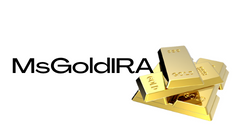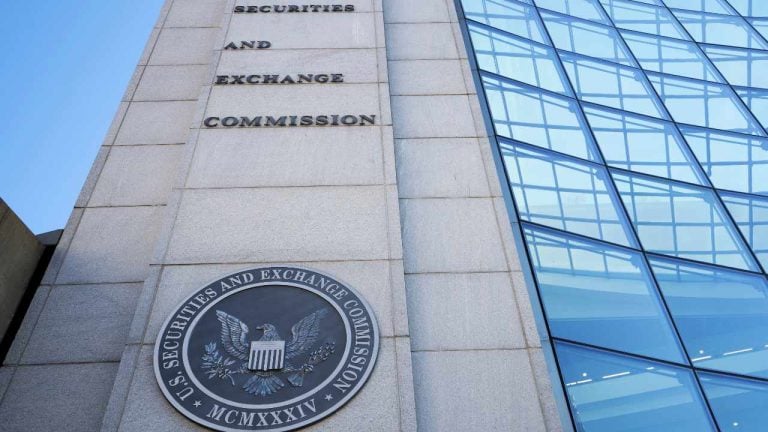
SEC's Advice on Spot Bitcoin ETFs
The Securities and Exchange Commission (SEC) has offered specific guidance to exchanges regarding the listing and trading of spot bitcoin exchange-traded funds (ETFs). This development has been hailed as "real progress" by insiders in the crypto industry, as it brings much-needed clarity to the cash vs in-kind debate.
According to reports, the SEC's Division of Trading and Markets has engaged in discussions with exchanges regarding spot bitcoin ETF applications. The regulator has advised exchanges to opt for the cash creation method instead of the in-kind method for ETFs. Exchanges have been asked to file amendments reflecting this change within the next few weeks. Analysts see this as a positive sign.
ETF units can be created either in cash or in-kind. In cash creation, authorized participants provide cash to the ETF issuer in exchange for new ETF units.
The Bloomberg ETF analyst, Eric Balchunas, believes that "Cash creates makes sense" because broker-dealers cannot transact in bitcoin directly. By using the cash creation method, the onus is on the issuers to handle bitcoin transactions, eliminating the need for broker-dealers to rely on unregistered subsidiaries or third-party firms. Balchunas sees this approach as less restrictive for broker-dealers overall.
However, Balchunas also notes that only a few filers had planned to use the cash creation method, while the rest preferred the in-kind method. Those who were planning in-kind creates may need to adjust their strategies or risk delays. Despite this, Balchunas emphasizes that the SEC's guidance does not significantly impact the chances of spot bitcoin ETF approval, which he estimates at 90%.
Many individuals in the crypto space view the SEC's advice as a positive step. Marshall Beard, the Chief Strategy Officer at crypto exchange Gemini, sees it as a sign of progress and believes that the cash vs in-kind debate is becoming clearer. He points to the Canadian spot ETFs that have been successfully using the cash creation model for years.
However, there are differing opinions on the matter. Gabor Gurbacs, a strategy advisor at Vaneck, argues that in-kind creates are superior to cash creates. He believes that the SEC's advice on cash creates indicates a lack of understanding or willingness to accept the best aspects of ETFs and bitcoin. Gurbacs asserts that in-kind creates are more efficient and that anyone managing an ETF would know this.
Balchunas acknowledges the SEC's perspective on cash creates but highlights that from an investor's viewpoint, in-kind creates offer advantages in terms of spread and taxation. He suggests that some issuers may still push for the in-kind process and could potentially engage with the SEC staff to find a resolution.
SEC Chairman Gary Gensler previously mentioned that the regulator is currently reviewing eight to ten spot bitcoin ETF applications. Many anticipate that the SEC will approve multiple spot bitcoin ETFs simultaneously in early 2022.
What are your thoughts on the SEC's guidance for exchanges to use cash creates for spot bitcoin ETFs? Share your opinions in the comments section below.
Frequently Asked Questions
How does gold perform as an investment?
Gold's price fluctuates depending on the supply and demand. Interest rates are also a factor.
Due to the limited supply of gold, prices for gold are highly volatile. Physical gold is not always in stock.
Who is entitled to the gold in a IRA that holds gold?
The IRS considers gold owned by an individual to be “a type of money” and is subject taxation.
You must have gold at least $10,000 and it must be stored for at the least five years in order to take advantage of this tax-free status.
Although gold can help to prevent inflation and price volatility, it's not sensible to have it if it's not going to be used.
If you are planning to sell your gold someday, it is necessary that you report its value. This can affect the capital gains taxes that you owe when cashing in on investments.
You should consult a financial planner or accountant to see what options are available to you.
Is gold a good investment IRA?
Anyone who is looking to save money can make gold an excellent investment. It can be used to diversify your portfolio. There is much more to gold than meets your eye.
It's been used throughout history as a currency, and even today, it remains a popular form of payment. It is often called “the most ancient currency in the universe.”
Gold is not created by governments, but it is extracted from the earth. Because it is rare and difficult to make, it is extremely valuable.
The supply-demand relationship determines the gold price. If the economy is strong, people will spend more money which means less people can mine gold. Gold's value rises as a result.
On the flipside, people may save cash rather than spend it when the economy slows. This means that more gold is produced, which reduces its value.
This is why investing in gold makes sense for individuals and businesses. If you make an investment in gold, you can reap the economic benefits whenever the economy is growing.
Also, your investments will earn you interest which can help increase your wealth. Plus, you won't lose money if the value of gold drops.
How much are gold IRA fees?
A monthly fee of $6 for an Individual Retirement Account is charged. This fee covers account maintenance fees, as well any investment costs that may be associated with your investments.
If you wish to diversify your portfolio, you may need to pay additional fees. These fees will vary depending upon the type of IRA chosen. Some companies offer free checking, but charge monthly fees for IRAs.
Most providers also charge an annual management fee. These fees can range from 0% up to 1%. The average rate is.25% annually. These rates are often waived if a broker like TD Ameritrade is used.
Which precious metal is best to invest in?
Answering this question will depend on your willingness to take some risk and the return you seek. Although gold has been considered a safe investment, it is not always the most lucrative. Gold may not be right for you if you want quick profits. If patience and time are your priorities, silver is the best investment.
If you're not looking to make quick money, gold is probably your best choice. Silver may be a better option for investors who want long-term steady returns.
Statistics
- If you accidentally make an improper transaction, the IRS will disallow it and count it as a withdrawal, so you would owe income tax on the item's value and, if you are younger than 59 ½, an additional 10% early withdrawal penalty. (forbes.com)
- Indeed, several financial advisers interviewed for this article suggest you invest 5 to 15 percent of your portfolio in gold, just in case. (aarp.org)
- Gold is considered a collectible, and profits from a sale are taxed at a maximum rate of 28 percent. (aarp.org)
- (Basically, if your GDP grows by 2%, you need miners to dig 2% more gold out of the ground every year to keep prices steady.) (smartasset.com)
- The price of gold jumped 131 percent from late 2007 to September 2011, when it hit a high of $1,921 an ounce, according to the World Gold Council. (aarp.org)
External Links
finance.yahoo.com
wsj.com
- Saddam Hussein's InvasionHelped Uncage a Bear In 90 – WSJ
- Are you interested in keeping gold in your IRA at-home? It's Not Exactly Legal – WSJ













